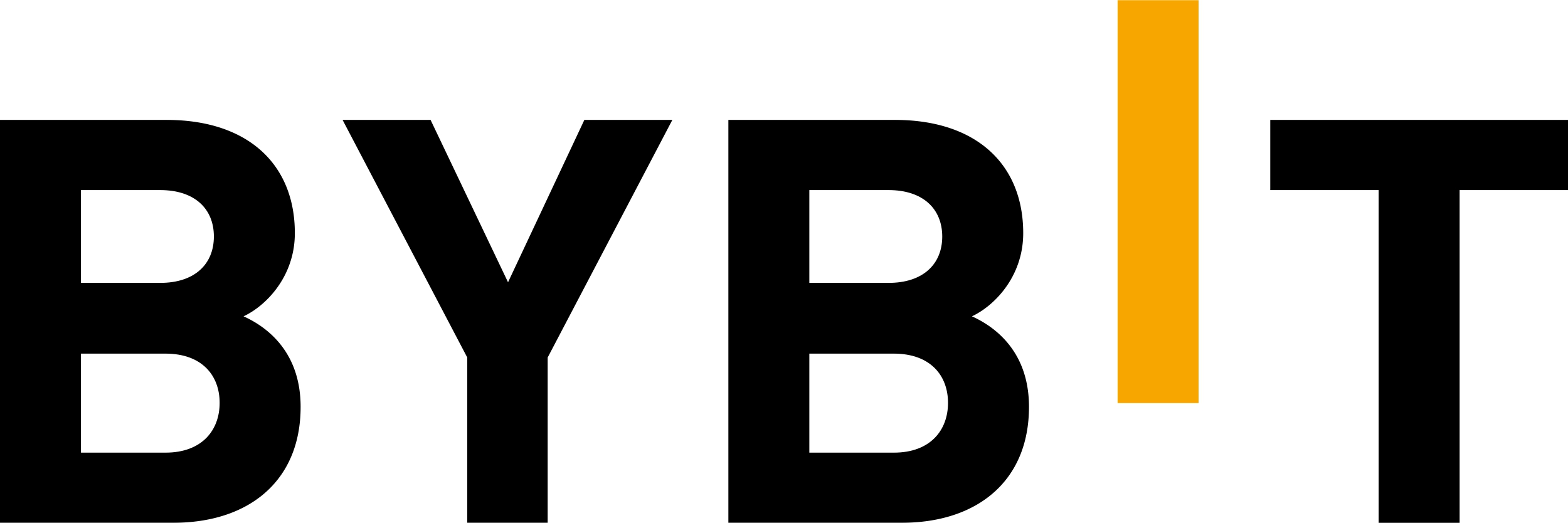Although it is the largest cryptocurrency by market cap, Bitcoin isn’t available to buy through every single crypto broker. Finding a platform that supports Bitcoin before going through the lengthy process of signing up is key to a smooth trading experience.
In this guide, we will reveal the 5 best Bitcoin brokers that support Bitcoin and offer a range of helpful features to support all kinds of Bitcoin trading strategies.
The Best Places to Buy Bitcoin Ranked
Before we dive into the fine details of why we picked each broker, here is an overview of the 5 brokers that made our list and the order in which we ranked them.
- Binance: The best Bitcoin broker and one of the largest brokers that offers over 500 cryptocurrencies. Binance also offers auto-trading APIs, staking and a demo account.
- Coinbase: Our top Bitcoin broker that offers a user-friendly interface, native crypto wallet, crypto interest and minimum orders of just $1. Coinbase is the best Bitcoin broker for beginners.
- eToro: The best broker that offers both Bitcoin and stocks. Users can copy the strategies of expert traders and trade Bitcoin spot ETFs.
- ByBit: The best all-in-one Bitcoin broker for experienced traders who want to implement complex trading strategies.
- OKX: One of the safest crypto brokers that offers fees as low as 0%.
Why Did We Choose The Best Bitcoin Brokers?
In the following section, we will take a closer look at each of the above Bitcoin brokers to see why they stood out as the best platforms to use in 2024.
The following reviews are based on our own experiences, user reviews and testimonials from other traders. It is a good idea to conduct your own research into each platform before deciding which one to use.
1. Binance – The most popular Bitcoin exchange
Binance is an excellent option for buying Bitcoin, especially given its status as the top Bitcoin broker by trading volume.
As one of the most well-known and globally accessible platforms, Binance allows users to buy, sell, and trade Bitcoin, including derivatives, with ease. The platform is user-friendly, making it suitable for both beginners and experienced traders.
Additionally, Binance stands out for its low fees and robust security measures, such as two-factor authentication (2FA), ensuring a safe trading environment. With 24/7 customer support, you can contact the support team at any time to resolve issues quickly.
2. Coinbase – The best Bitcoin broker for beginners
Coinbase is one of the biggest players in the crypto space, offering a huge range of coins and great educational material for beginners.
The broker is highly rated by users and with numerous positive reviews on TrustPilot, Coinbase provides a smooth and intuitive experience. The platform supports fractional trading, allowing you to start with as little as $1, making it a great option for newer traders.
While customer support is not its strongest feature, there are multiple ways to get in touch with the team. Additionally, Coinbase offers a wealth of educational resources that you can use to improve your crypto knowledge and make informed decisions.
3. eToro – The best platform to buy Bitcoin ETFs
When it comes to buying Bitcoin, eToro stands out as a great option for several reasons. First and foremost, eToro is a highly licensed broker, meaning it’s regulated and trusted across multiple jurisdictions.
Furthermore, not only can you buy Bitcoin, but you can also access the stock market and crypto ETFs all in one place. This makes it incredibly easy to diversify your portfolio without juggling multiple platforms.
eToro is also known for its copy trading services that allow you to copy the strategies of experienced investors. You can practice using the platform with virtual funds up to $100,000 through the broker’s free demo account.
4. ByBit – The best all-in-one Bitcoin broker
If you’re an advanced trader looking for a more intricate platform to buy Bitcoin, ByBit might be a good option to consider.
Standing as one of the best all-in-one Bitcoin brokers, ByBit offers everything you could need—from an exchange and P2P marketplace to spot trading, OTC trading, and even leverage options. This makes it a go-to for those who want to dive deep into the crypto world and explore complex strategies.
If you want to conduct in-depth technical analysis, ByBit is compatible with the MT5 charting tool which offers hundreds of indicators and drawing features. ByBit also provides access to crypto trading bots that automate your trading process. This feature is ideal for optimizing your strategy and taking advantage of market opportunities, even when you’re not actively monitoring the market.
5. OKX – The most secure Bitcoin broker
If you’re looking for a Bitcoin broker that caters to both beginners and seasoned traders, OKX is definitely worth considering. This platform offers a versatile experience, allowing you to either buy Bitcoin directly or deposit your existing Bitcoin and swap it for other currencies.
One of the most impressive features of this broker is security. The broker maintains a 1:1 reserve for all users’ funds, meaning your assets are always fully backed. To ensure transparency, OKX frequently generates proof of reserves reports, giving you peace of mind that your money is safe.
Like many of the best Bitcoin trading platforms, OKX offers a range of useful features including basic buying and selling, APIs, staking and a native crypto wallet.
How to Use a Bitcoin Broker in 2024
Once you have chosen a Bitcoin broker that meets your needs, the next step is to create an account and get started.
Each of the brokers that we have reviewed in this guide are centralized, which means that you have to go through a KYC process to create an account. This is put in place to protect you from malicious individuals who may try to hack into your account.
The exact process of signing up to a broker may vary depending on which provider you choose. However, most of the time you will have to go through the following steps.
- Initial registration: Fill out the simple registration form with your name, email and mobile number of begin the process. Make sure to use a reliable internet connection when doing this.
- Account verification: To comply with KYC, brokers will ask you to verify your identity with proof of ID or a phone call verification.
- Connect a payment method to your account: Most brokerages accept bank transfers, debit cards and wire transfers. You might also be able to fund our account with crypto from a wallet.
- Search for a token and place an order: Search for the relevant ticker symbol and fill out the order form to make your first purchase. Some brokers will provide a native wallet that you can use to store your crypto safely.
How to Know If a Bitcoin Broker Is Good?
Our top five Bitcoin brokers barely scratch the surface of options that are available. So, how do you know if a broker is actually worth using?
Here are some key things to consider when choosing a platform to buy Bitcoin.
Consider your experience and strategy
First things first, think about your level of experience and your trading strategy. Are you a beginner looking for a simple, user-friendly platform, or are you an experienced trader in need of advanced tools?
The right broker should align with your skill set and provide everything that you need to execute your trading strategy. Thinking about this from the start will prevent you from needing to change platforms later down the line.
Look at user reviews and testimonials
Next, do some research on what other users are saying. Reviews and testimonials can offer invaluable insights into a broker’s reliability, customer service, and overall performance. A good broker will generally have a strong reputation within the wider community, with positive feedback from its users.
Review the platform’s fees and minimum deposit
Fees can reduce your profits, so it’s crucial to understand what you’ll be charged. Look for a broker with transparent fees and a minimum deposit that suits your budget.
Some platforms offer low or even zero fees, which can be appealing if you’re looking to keep costs down. However, be careful of hidden fees that may be charged by these platforms.
Check the broker’s regulatory status and security features
Security should be a top priority when choosing a Bitcoin broker. Make sure the platform is licensed and has strong security measures in place, like encryption and two-factor authentication. A good broker will also be transparent about how it protects your funds and personal information.
Use a demo account to practice trading Bitcoin
If a broker offers a demo account, take advantage of it. A demo account allows you to practice trading without risking real money, helping you get comfortable with the platform before you deposit any funds. It’s a great way to test the waters and ensure the broker meets your needs.
Final Thoughts on Bitcoin Brokers
Bitcoin brokers are suitable for people who want to invest or trade Bitcoin through a reputable platform that prioritizes security. In this guide, we have revealed 5 top Bitcoin brokers to consider in 2024 and explained why each platform made our list.
However, this list is not exhaustive and there are plenty of options available. We recommend doing your own research into different platforms before making any final decisions. For example, you might want to check out our list of the best Bitcoin CFD brokers to discover platforms that are better suited to day trading.
FAQs
What is the best company to buy Bitcoin from?
The best companies to buy Bitcoin from include Binance, Coinbase, OKX, eToro and ByBit. We developed this list by looking at platforms that we have used, reading user reviews and reviewing the trading volume on each broker.
What is the most trusted Bitcoin investment site?
The most trusted Bitcoin investment site on our list is eToro, which is licensed in 7 jurisdictions. However, OKX also has a strong reputation for providing transparency and great customer service.
What is the safest website to buy Bitcoin?
eToro stands out as one of the safest website’s to buy Bitcoin because it is licensed in 7 jurisdictions and employs strict security protocols.














